Every time I swap social media handles with colleagues, I sit with bated breath. Watching their expression, waiting for the eyebrow raise, at this point, it’s a very familiar reaction. My Instagram profile is - to put it mildly - a bit much. I like travelling, I like pretty backdrops and I like wearing small bikinis. Inevitably, that means a lot of pictures of me half-naked in tropical destinations.
Apparently, me and Kim Kardashian have this experience in common. Because, now that she's a bonafide criminal justice activist and soon-to-be lawyer, she's spending a lot of time around very important, very professional people. As a result, she doesn't want to post bikini selfies on Instagram anymore.
'I did think "okay, I’m here in the White House" and then the next day I was posting a crazy bikini selfie,' she told The Cut this week. 'And I was thinking, "I hope they don’t see this". I have to go back there next week.'
As you can imagine, when your social media is filled with bikini pictures, this elicits a very particular reaction from people you work with. Luckily for me, I'm mostly surrounded by women who are on board with posting whatever the hell you want on social media - Kardashian's new industry probably isn't that woke. ‘Omg YAS’ is the common response when I share my handle with colleagues. Although, this is typically always followed by ‘but I could never post this’.
Obviously, there are a range of reasons women wouldn’t want to post their half-naked bodies on Instagram – which I can completely understand. But there is one reason that bugs me, and it’s the one I hear most, more so from people outside of my industry than it.
‘If I posted that I’d probably get sacked’, my friend laughed once, pointing to a picture of me sat on the beach in, you guessed it, a bikini. She works in corporate PR, and naturally she has to maintain a professional image online.
‘My online presence is tied to my company,’ she explains when I press her on why. ‘I work with government ministers on a daily basis. Blue-chip clients wanting to make connections with influential people are probably going to be more drawn to a “safe pair of hands” who gives a super professional external presence.'
But the fear of a Google deep-dive from clients isn’t the only reason she’s turned off from posting anything that could be seen as sexual, it’s also knowing colleagues will see the images.
‘My boobs came in so early that I have been sexualised from such a young age,’ she says. ‘Now that I’m older and I’m more in control of my sexuality, I like to keep it more private. Especially working with high profile people who already stereotype me as the token northerner, I don’t want to be fobbed off as the “scouse slag with big boobs”’
Her experience isn’t just based on anecdotal evidence, according to HR advisor Lucinda Aspinall, posting half-naked pictures on social media is often considered unprofessional by managers and can lead to unfair judgements about your private life.
‘In my experience, it's an unwritten rule at most offices,’ she says. ‘There’s an assumption that other people will feel uncomfortable seeing your naked body, so if you have colleagues following you on social media it’s a definite no.’
‘It’s not right necessarily,’ she continued. ‘But people bring their prejudices into the office with them so it doesn’t matter if you think you’re being body positive or sex positive or just living your best life, if your manager thinks the opposite their own bias will impact how they see you.’
For me, a professional presence online would mean not sharing anything derogatory about other people, your former employer or current job. Because, just like having a specific dress code where women are encouraged to cover up, I personally don’t see how nudity in any form can translate to a lack of professionalism.
If a business can prove you’re bringing the company into disrepute you can be sacked for anything you post online - but it’s a huge grey area
I am just as good at my job when I’m wearing a polo neck and trousers as I am in a bikini. And frankly, if it makes someone feel uncomfortable seeing nudity, that says more about them than it does my ability to do my job. But it’s not just about the weird discomfort with nudity that we seem to have in Britain, is it? It’s also about how people sexualise female nudity constantly - and without their consent.
A woman who is half-naked is assumed to be wanting sexual attention. A woman who wants sexual attention is seen to have no self-respect. A woman with no self-respect is therefore unprofessional. All three of these statements are based on absolutely no logic.
If I’m half-naked on Instagram and you’re choosing to sexualise my body – that’s on you, not me. Frankly, I face this online and offline because I literally despise wearing clothes. It sounds ridiculous, I know, but I find long sleeves and long pant legs quite claustrophobic and uncomfortable.
Obviously, I don’t walk around naked in day to day life because I’d rather not be ostracised by society, but if I had my way I absolutely would – and no one would bat an eyelid or try and have sex with me (reader, I’m being serious, I rarely have or want to have sex with men).
It’s the same with posting online, am I meant to avoid showing my body in pictures just to ensure people aren’t sexually attracted to me and ultimately have respect for my brain? By that logic, I shouldn’t go out in a short skirt to ensure I’m not cat-called. Am I less professional (and therefore, what, less intelligent?) because you’re sexually attracted to my body?
That’s what it’s really all about isn’t it: women can’t be sexual, attractive and intelligent all at the same time. Not if they want respect. That's exactly why Kim Kardashian now feels so uncomfortable posting bikini pictures online, because her image as a sex symbol means she won't be respected an academic-focused industry such as law.
This very point was raised by Dr. Victoria Bateman, author of The Sex Factor, last year when she gave a lecture about Brexit at the University of Cambridge completely naked.
After delivering a political message about how Brexit leaves the UK’s economy ‘naked’, the backlash to Victoria’s protest caused her message to snowball from its original purpose into a fight against how people police female nudity. ‘Why as a woman should I only be able to use my body for sex and babies, why shouldn’t I also use my body to deliver an important message?’ she asked.
Of course, my half-naked body on a beach in Thailand isn’t delivering any sort of political message – and neither is Kim Kardashian's in the most part - but the fact women can’t post a picture like that without being considered unprofessional by many speaks to the same truth.
‘My utopia is one in which women are free to do what they want with both their brains and their bodies,’ Dr Bateman tweeted last week, ‘One where a woman's worth/value doesn't hang (precariously!) on her bodily modesty. Where we judge women on much more important things than whether their body has been "seen".’
And this is my entire point. Why are my abilities to debate thoughtful arguments, hold an important meeting or deliver a presentation undermined by my naked body? At what point did me wearing a bikini on Instagram suddenly mean I can’t successfully meet deadlines, hit targets or increase profit margins?
Logically, there is no basis for the assumption that being half-naked online makes you unprofessional. And yet, I continue to feel uncomfortable if I’m asked to share my social media in professional settings. Perhaps it’s time for a rebellion via Instagram thirst traps. Unite in our barely-there bikinis and sand-sodden bottoms and make the point that actually, we can still do our jobs to a high-degree, half-naked or not. In fact, for all you know, I could be doing that right now.
Read more: the best celebrity comments on Instagram
Just Some Of The Best Comments Celebs Have Left On Instagram
 1 of 37
1 of 37comments by Celebs
 2 of 37
2 of 37comments by Celebs
 3 of 37
3 of 37comments by Celebs
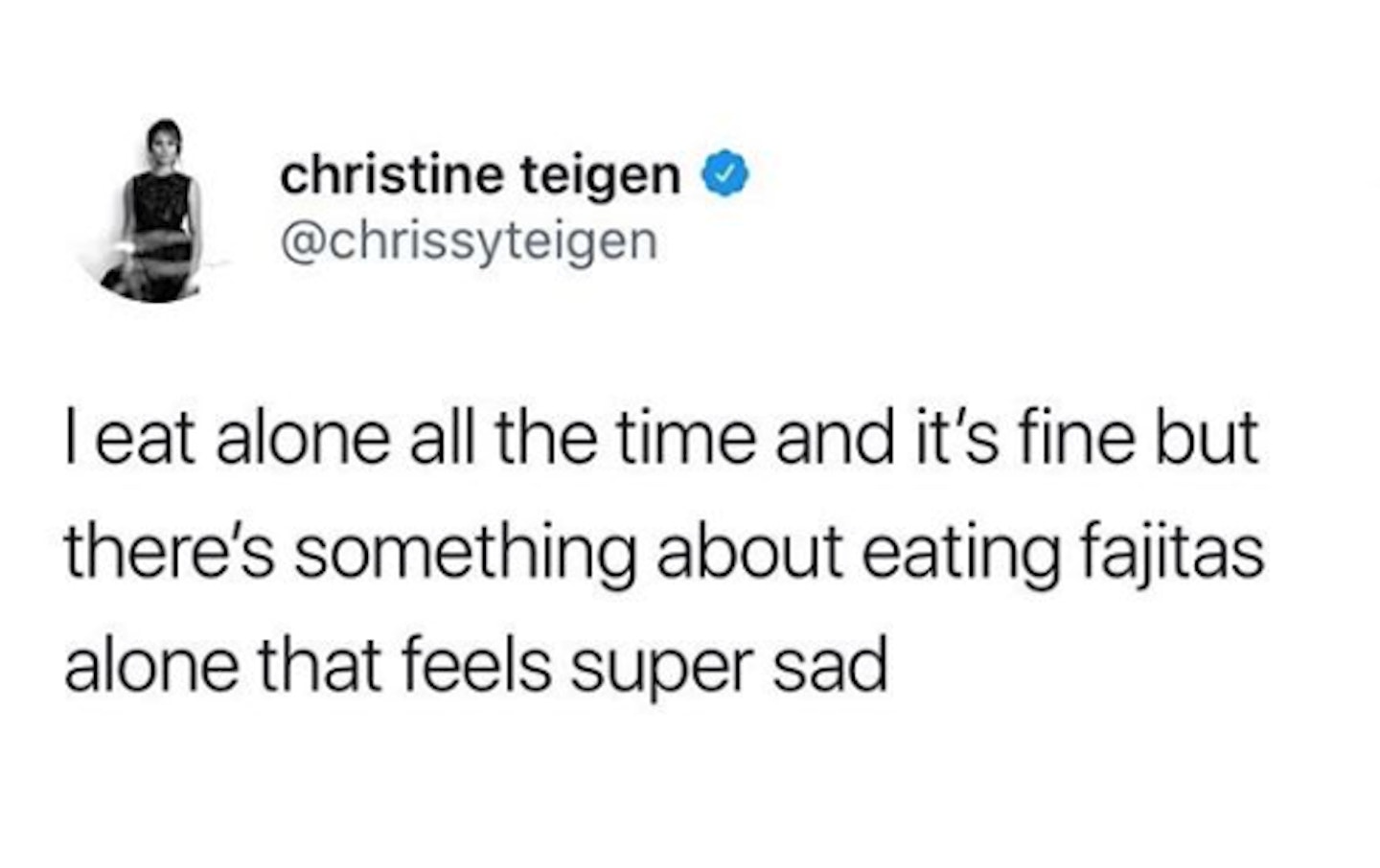 4 of 37
4 of 37comments by Celebs
 5 of 37
5 of 37comments by Celebs
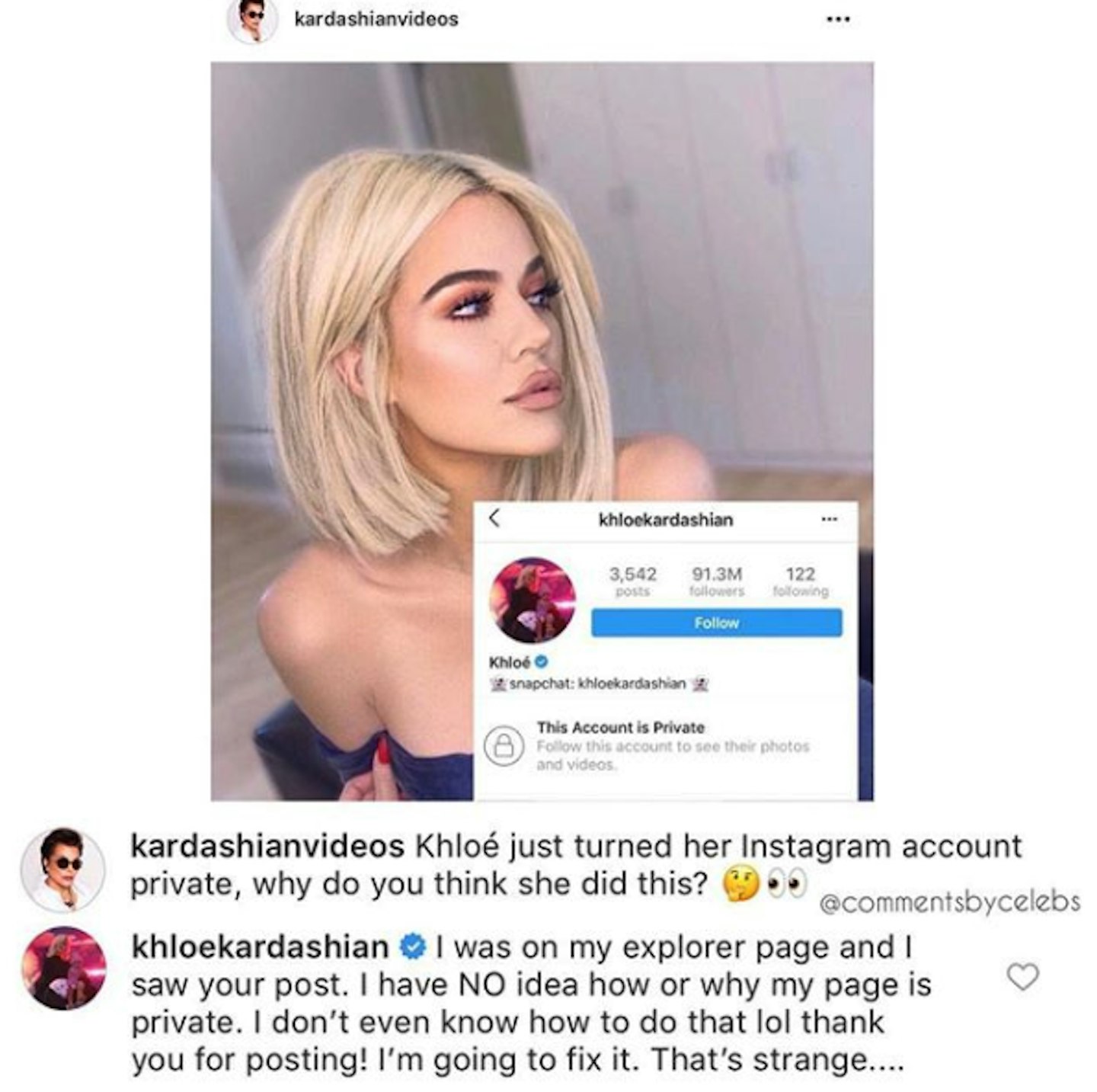 6 of 37
6 of 37comments by Celebs
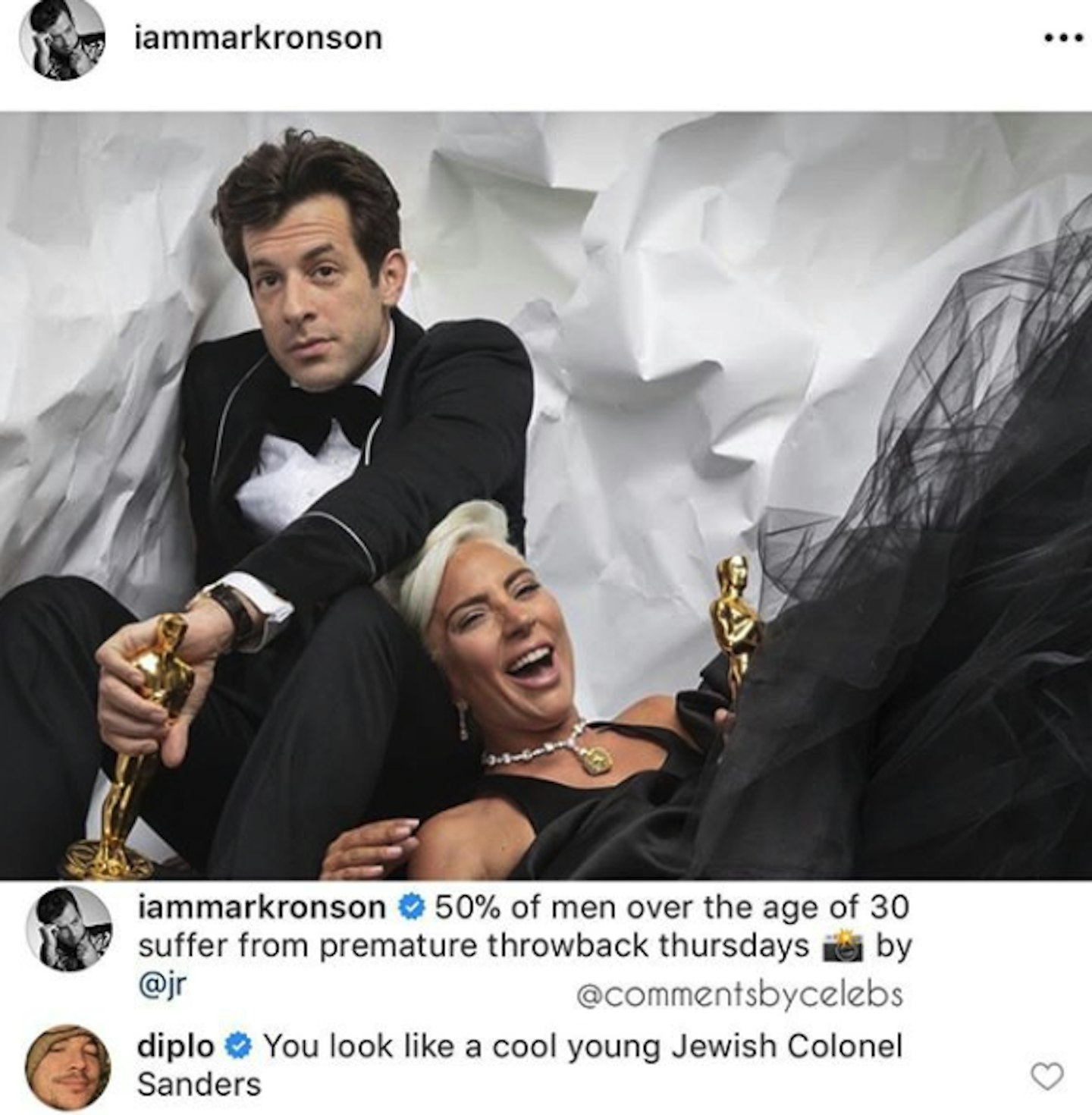 7 of 37
7 of 37comments by Celebs
 8 of 37
8 of 37comments by Celebs
 9 of 37
9 of 37comments by Celebs
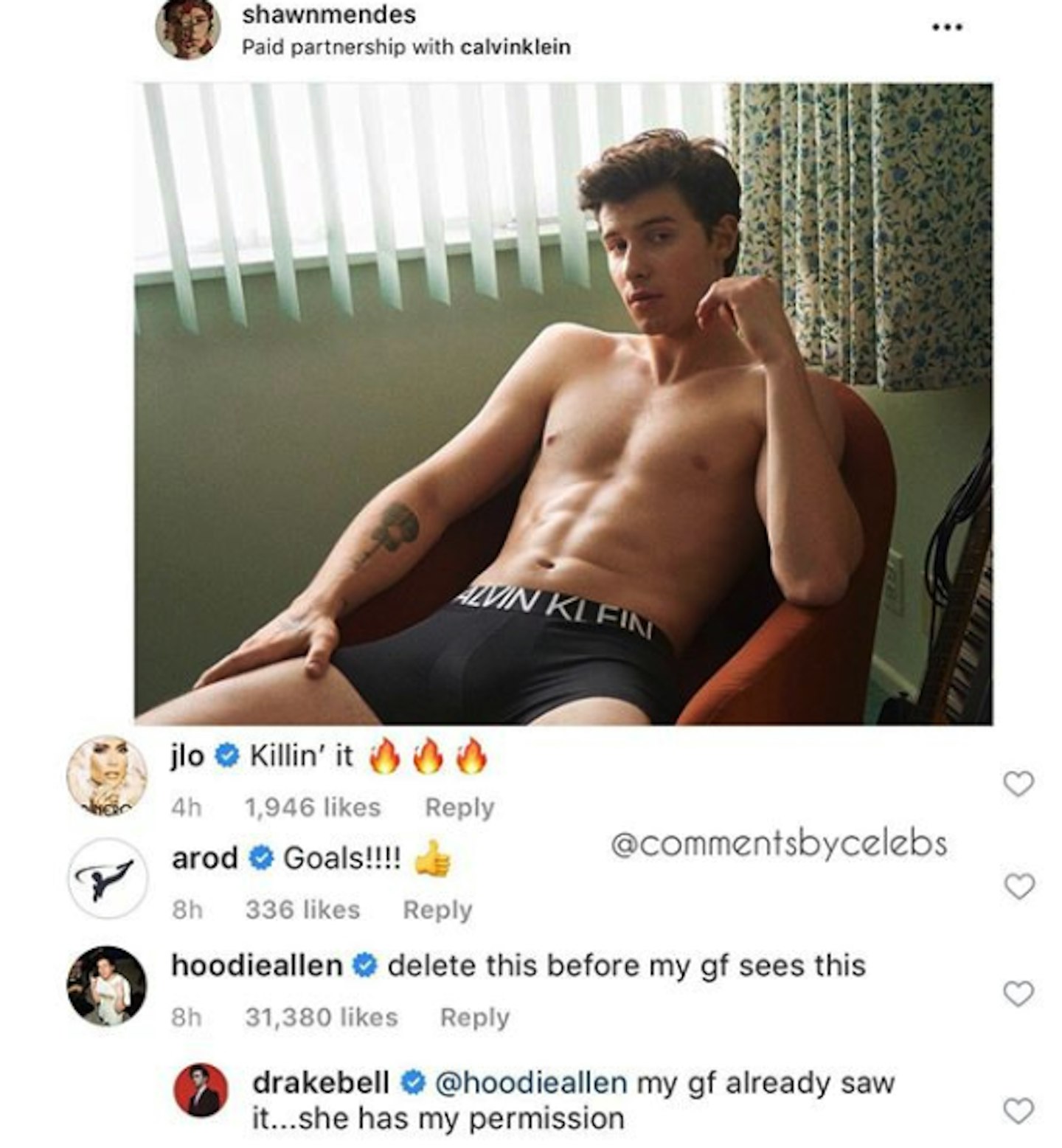 10 of 37
10 of 37comments by Celebs
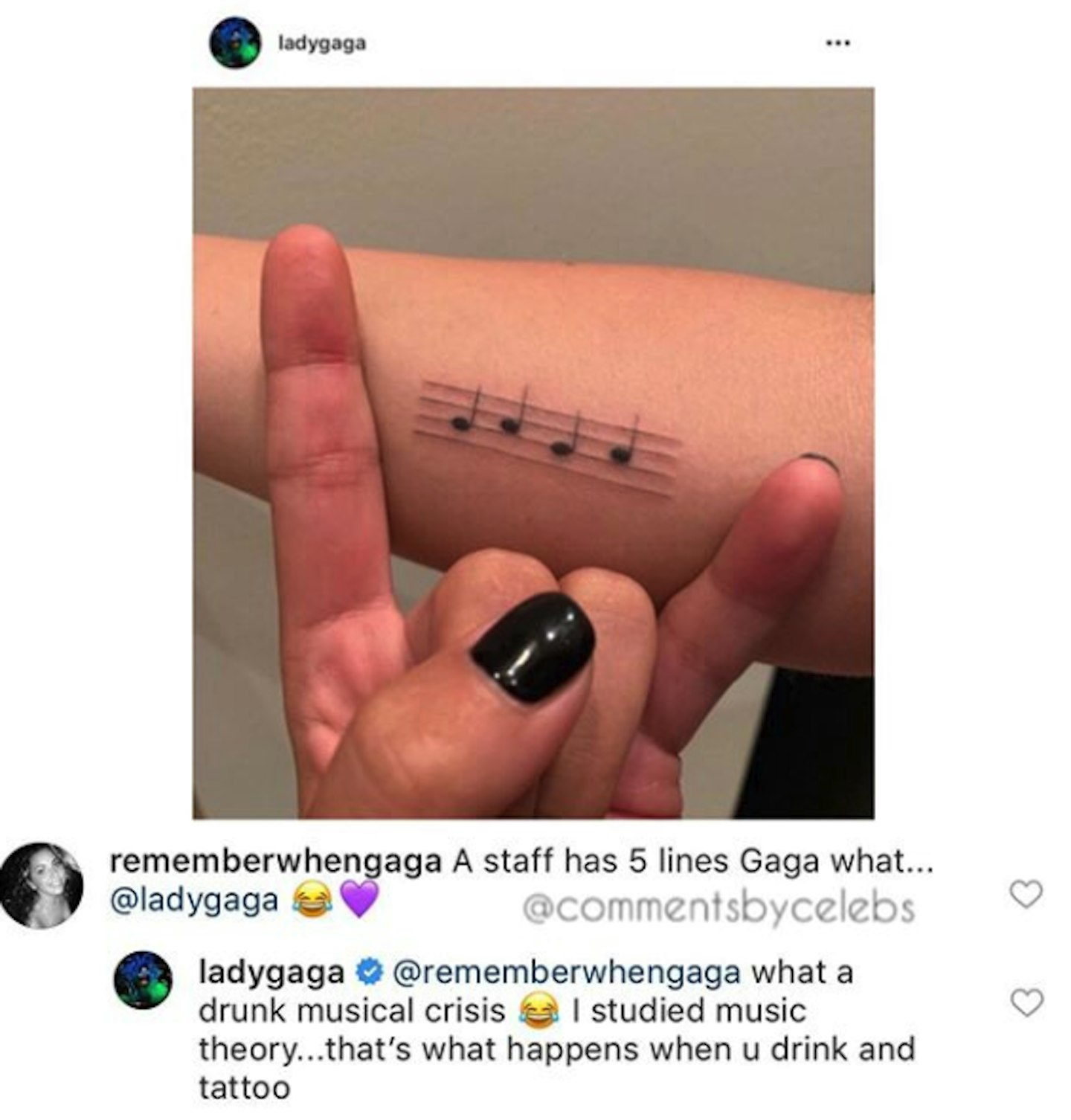 11 of 37
11 of 37comments by Celebs
 12 of 37
12 of 37comments by Celebs
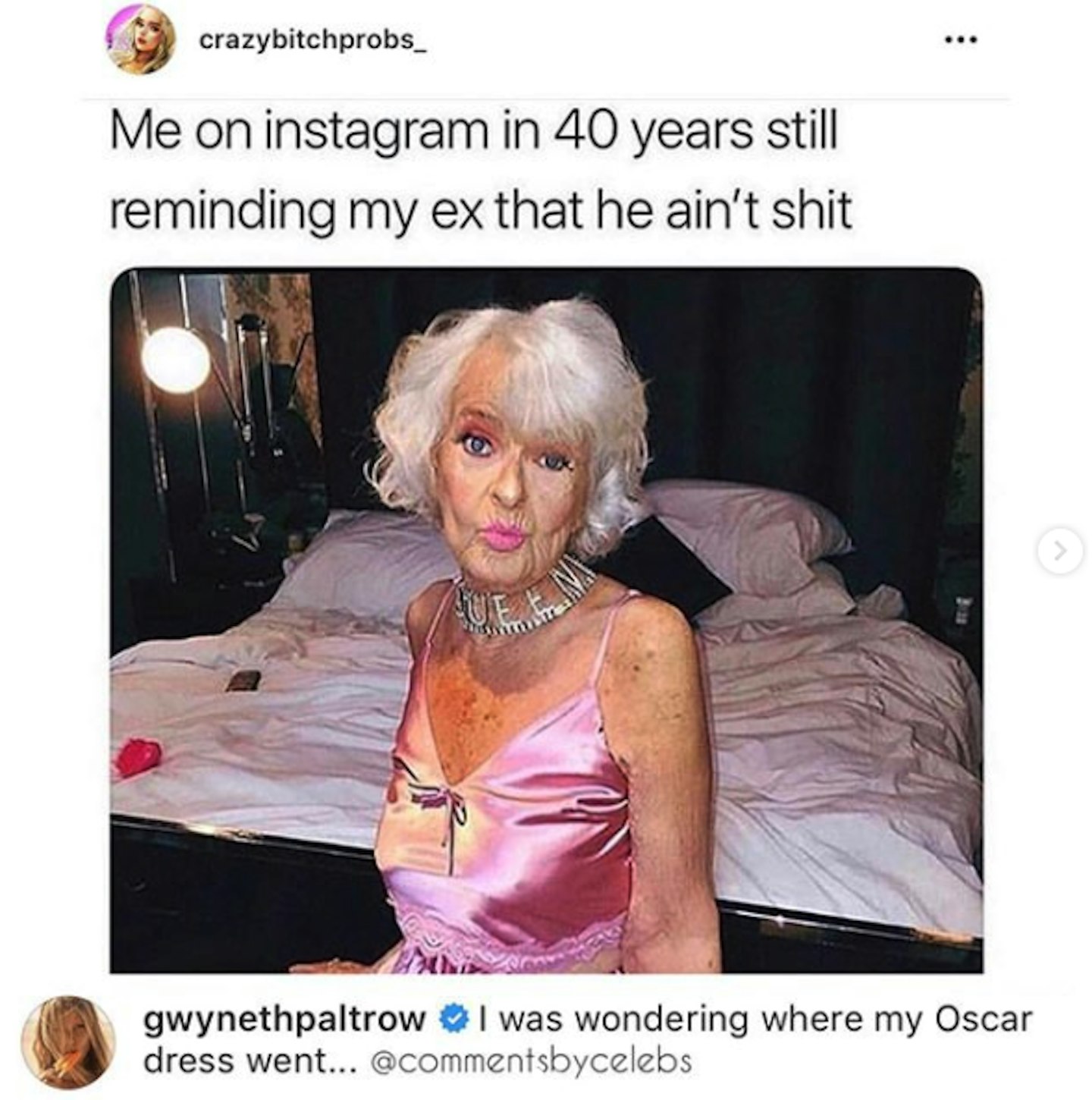 13 of 37
13 of 37comments by Celebs
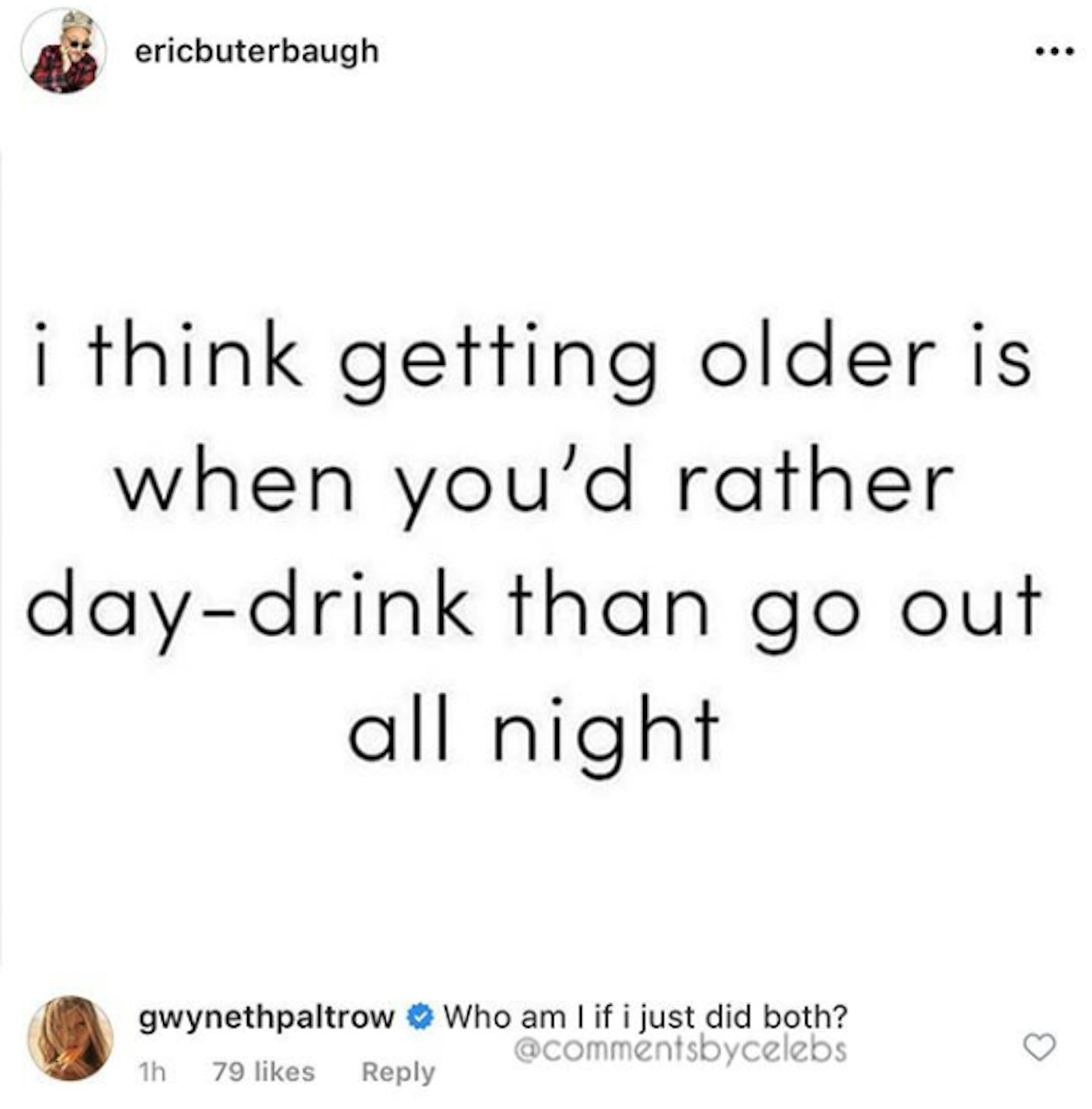 14 of 37
14 of 37comments by Celebs
 15 of 37
15 of 37comments by Celebs
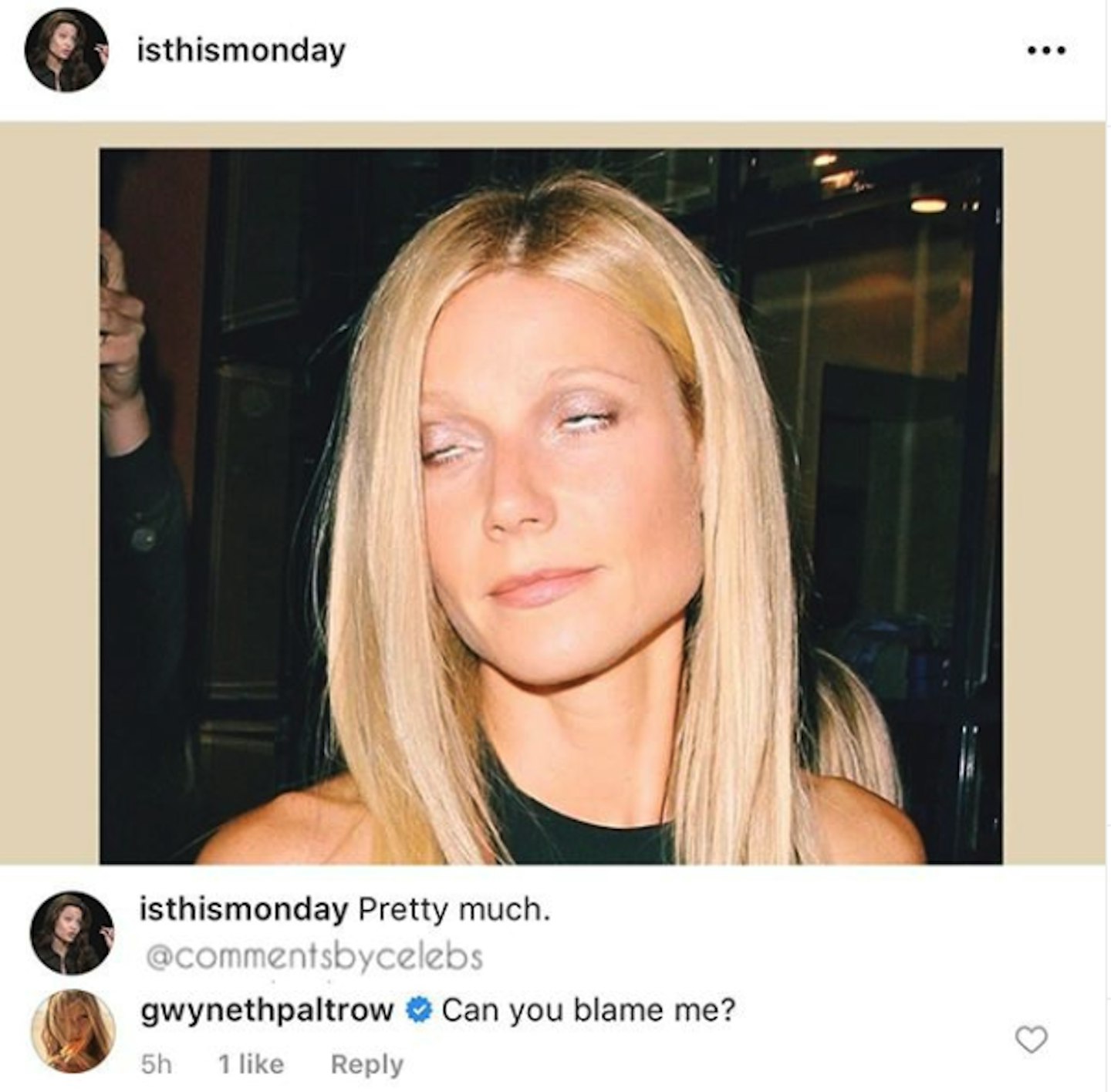 16 of 37
16 of 37comments by Celebs
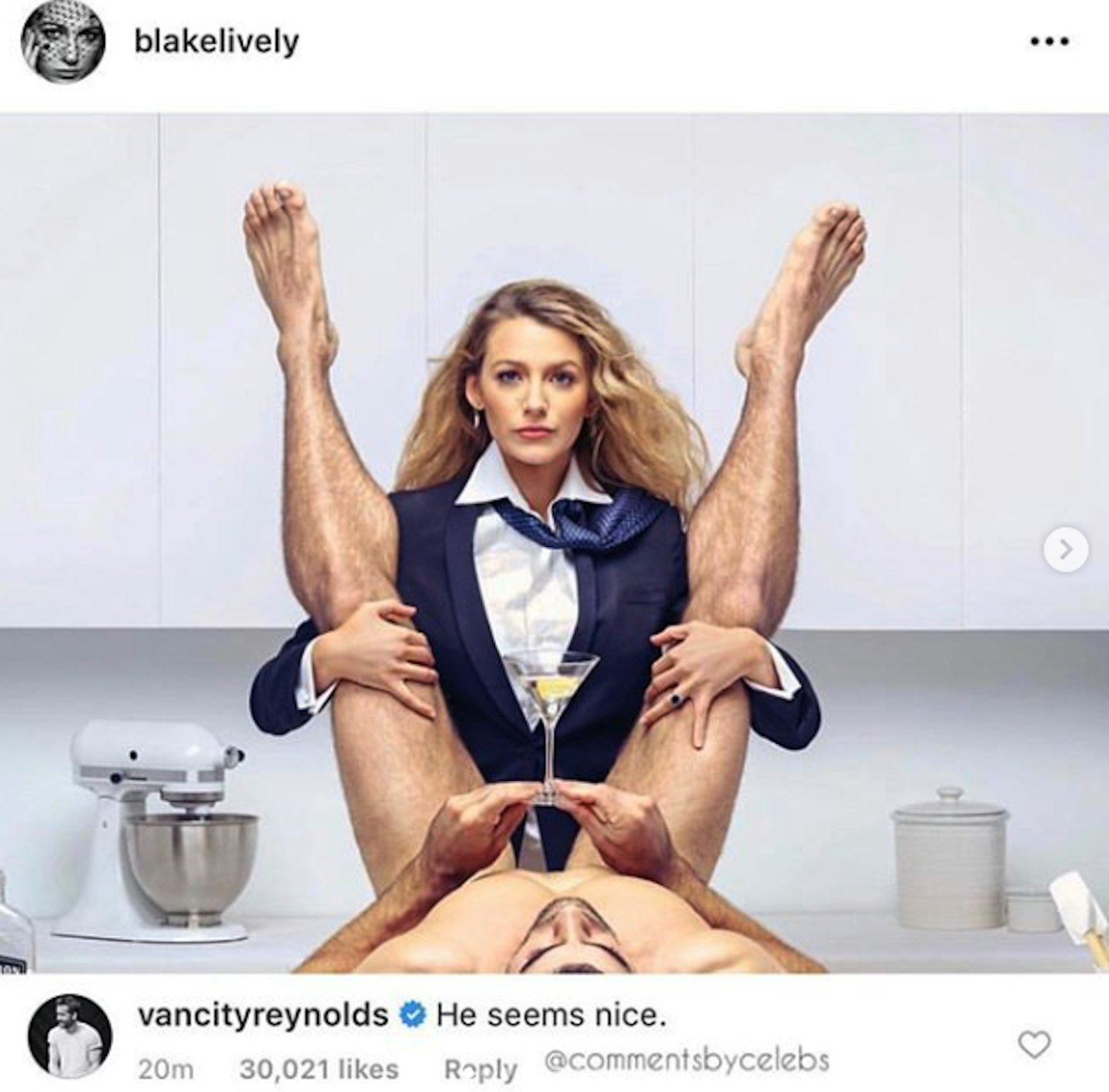 17 of 37
17 of 37comments by Celebs
 18 of 37
18 of 37comments by Celebs
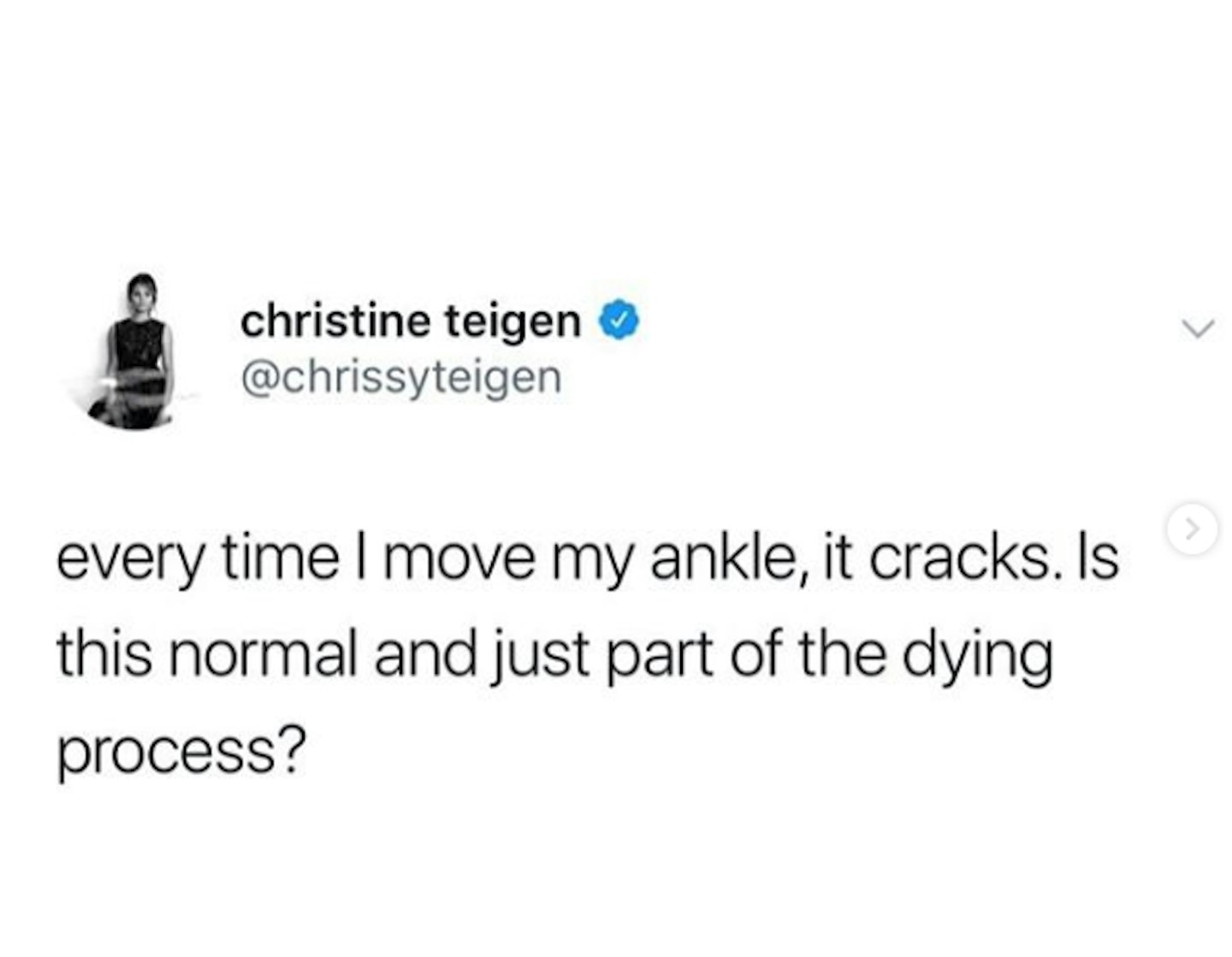 19 of 37
19 of 37comments by Celebs
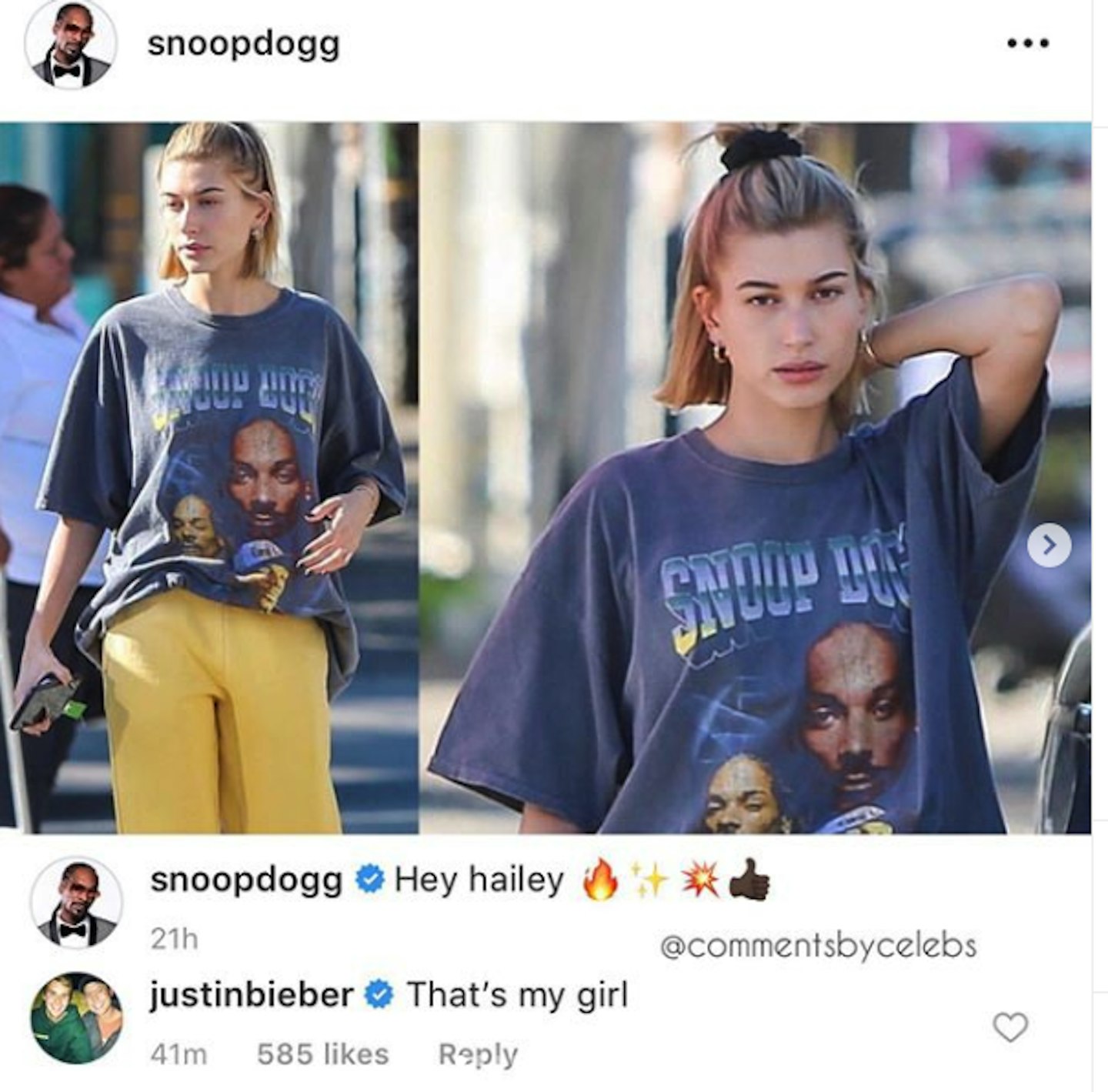 20 of 37
20 of 37comments by Celebs
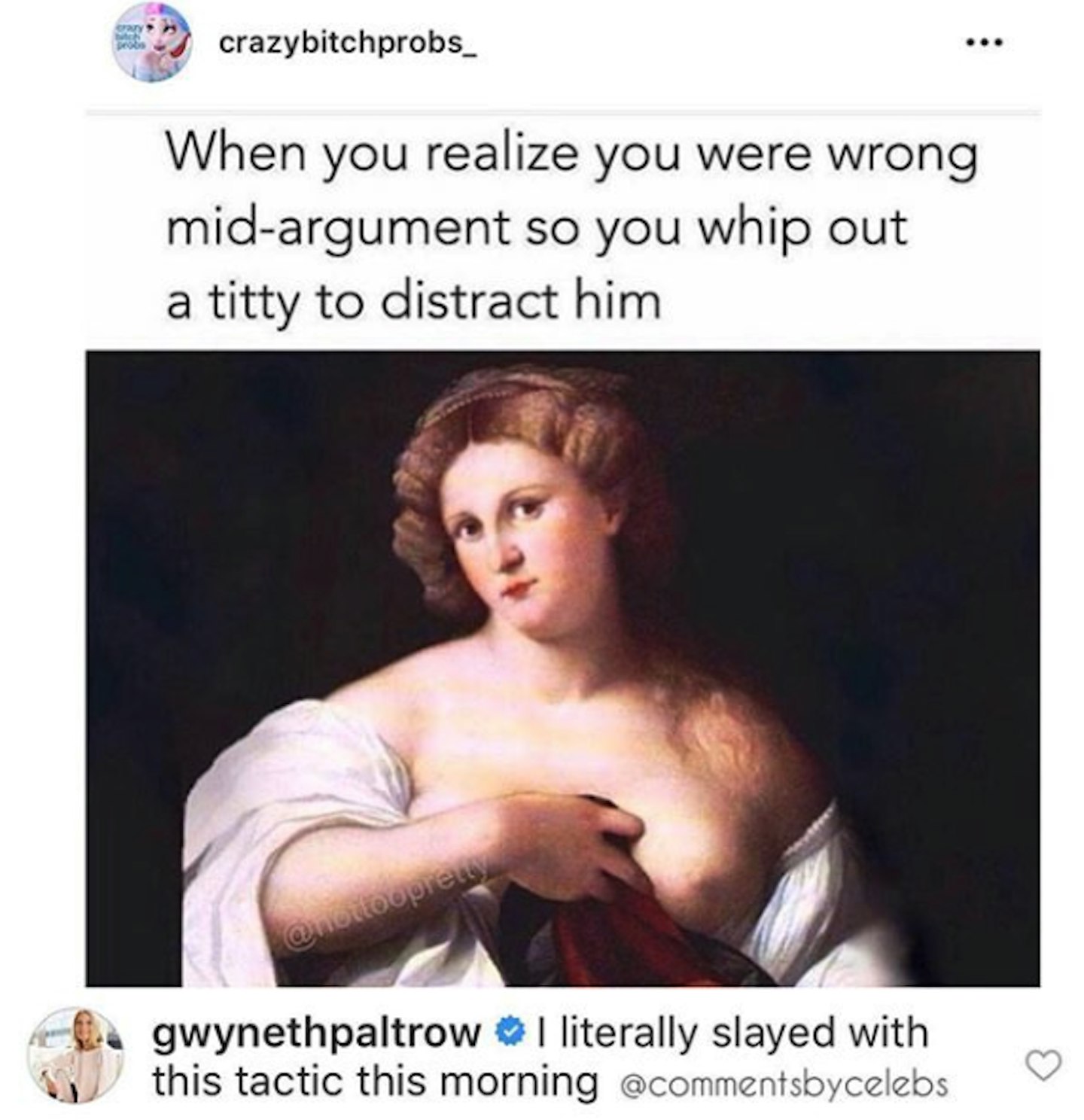 21 of 37
21 of 37comments by Celebs
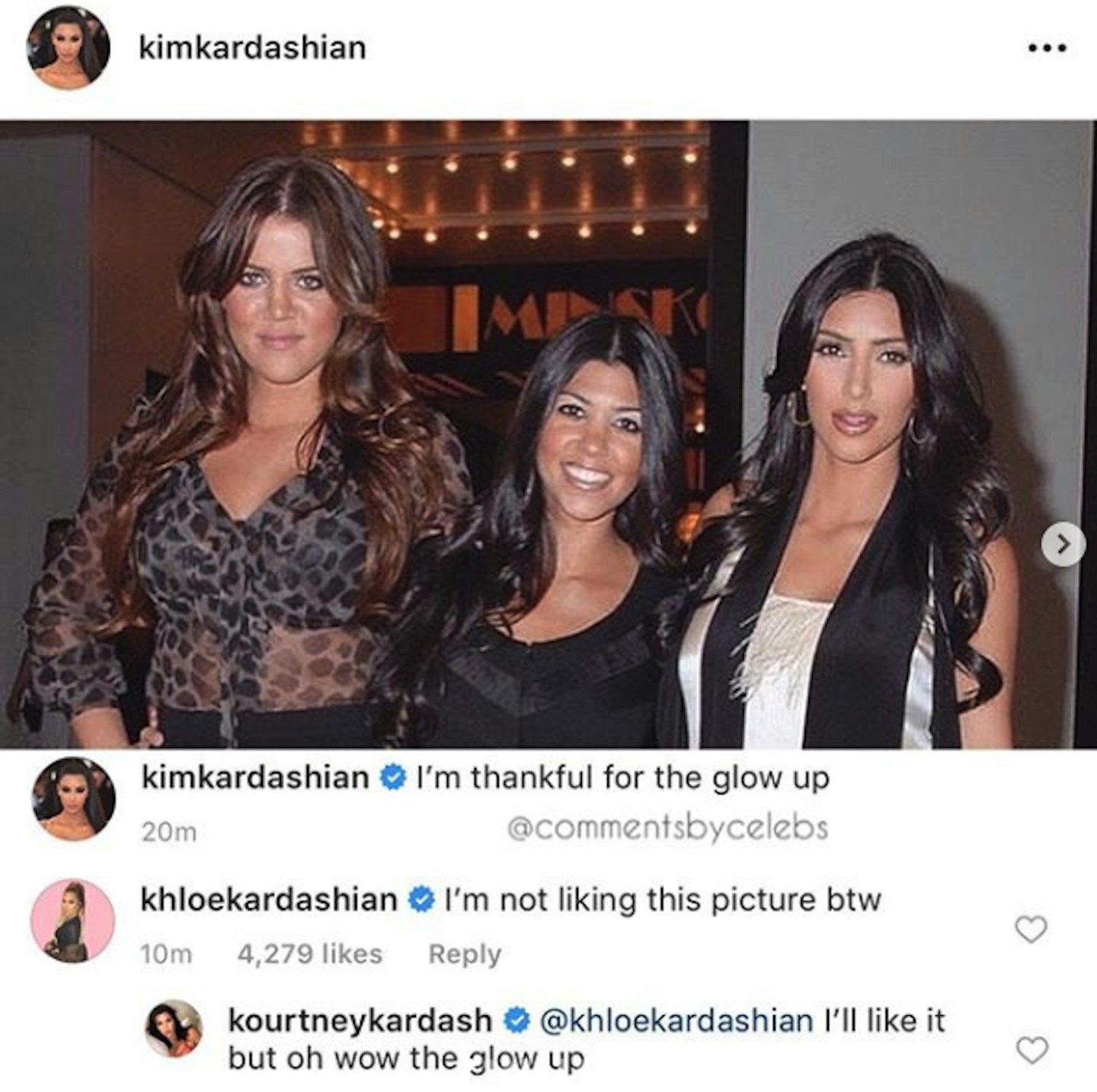 22 of 37
22 of 37comments by Celebs
 23 of 37
23 of 37comments by Celebs
 24 of 37
24 of 37comments by Celebs
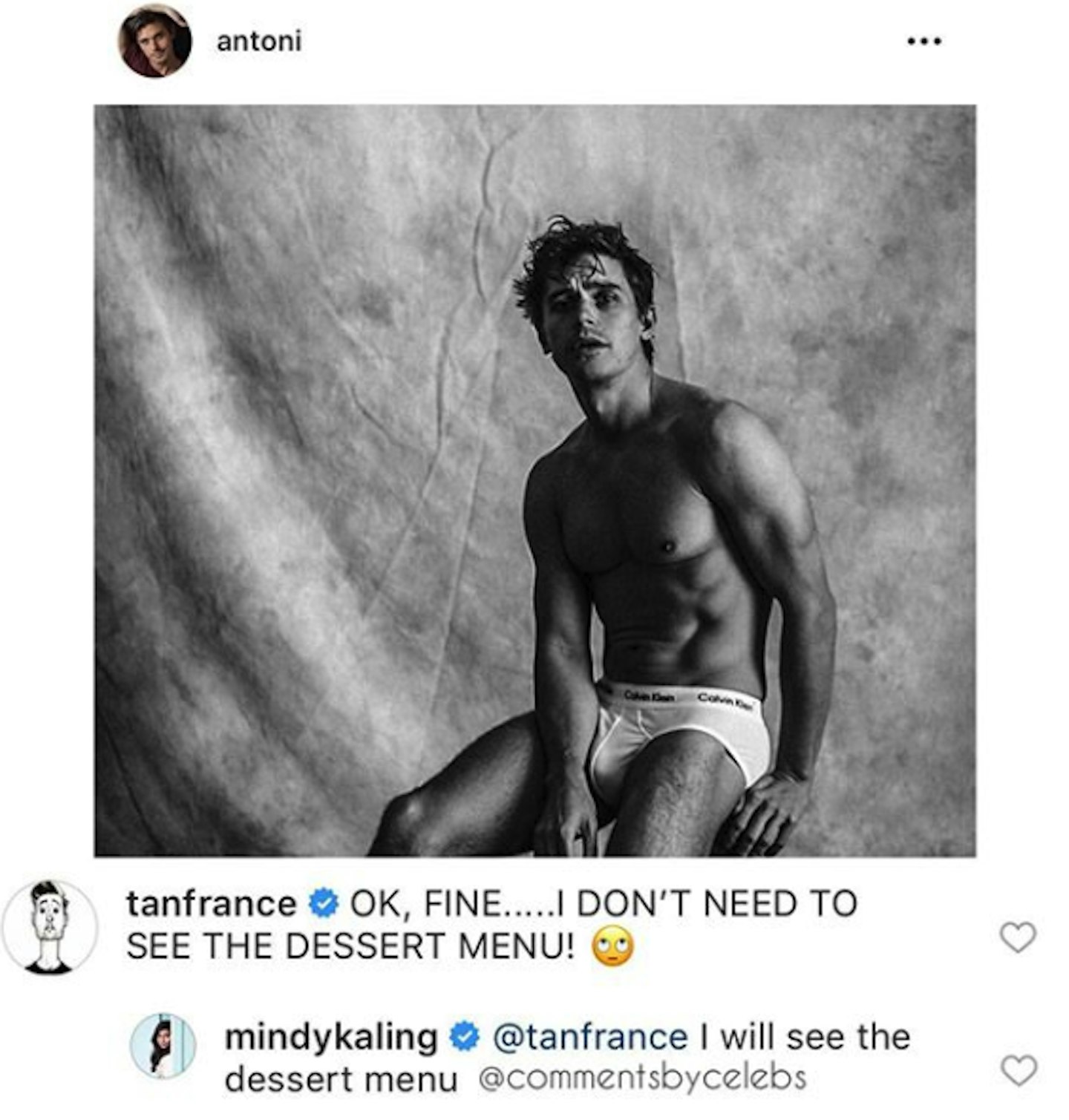 25 of 37
25 of 37comments by Celebs
 26 of 37
26 of 37comments by Celebs
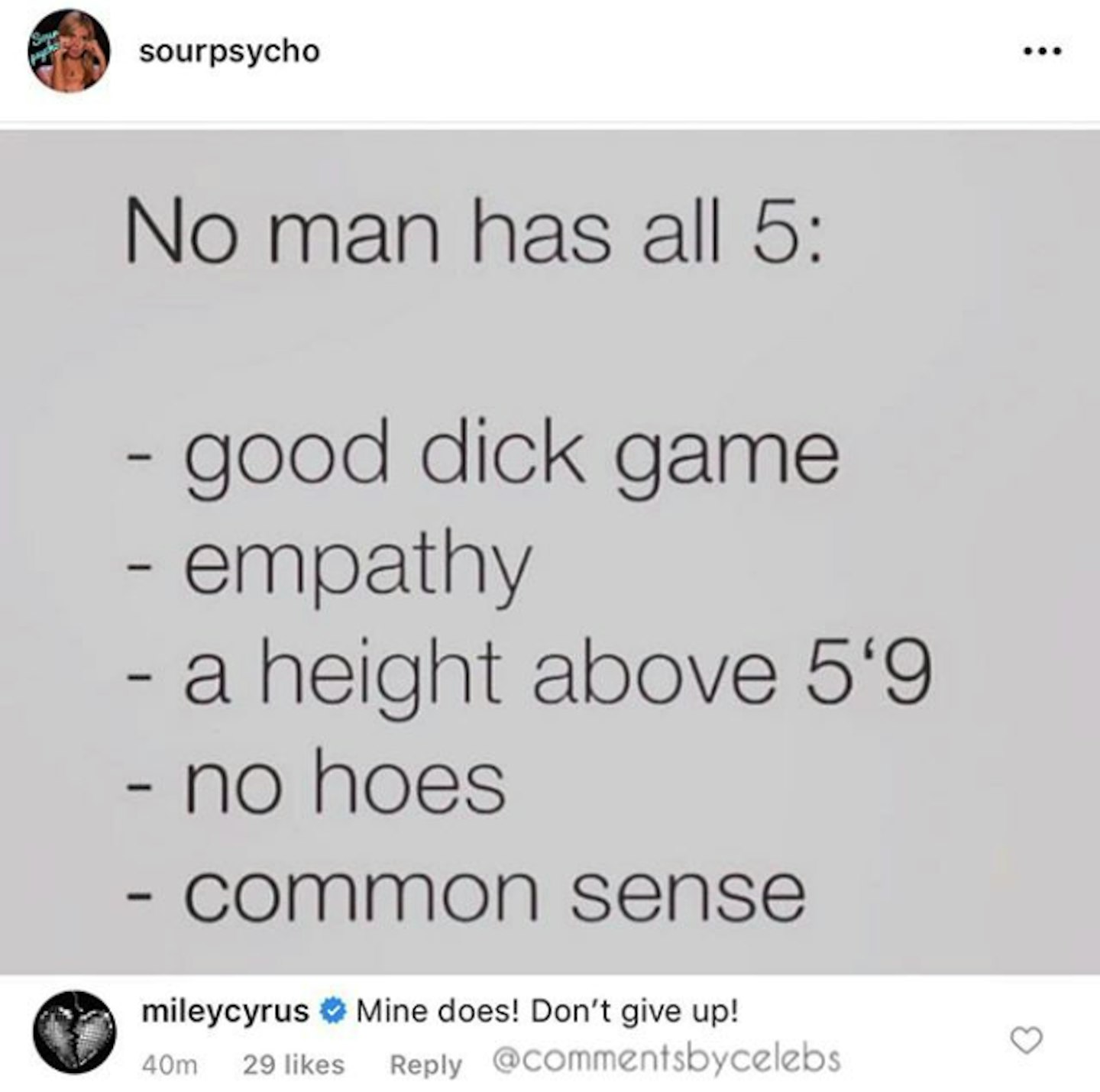 27 of 37
27 of 37comments by Celebs
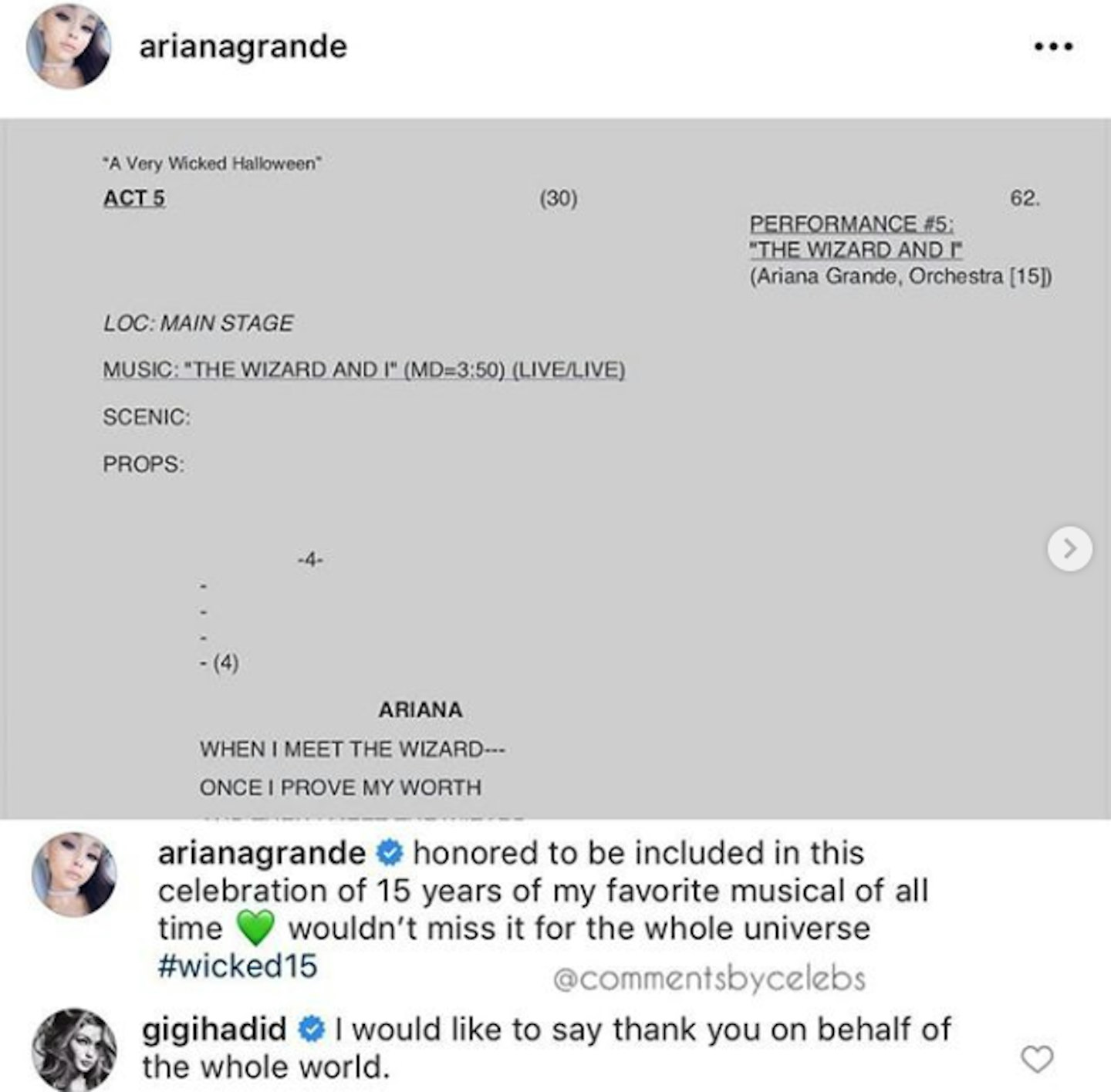 28 of 37
28 of 37comments by Celebs
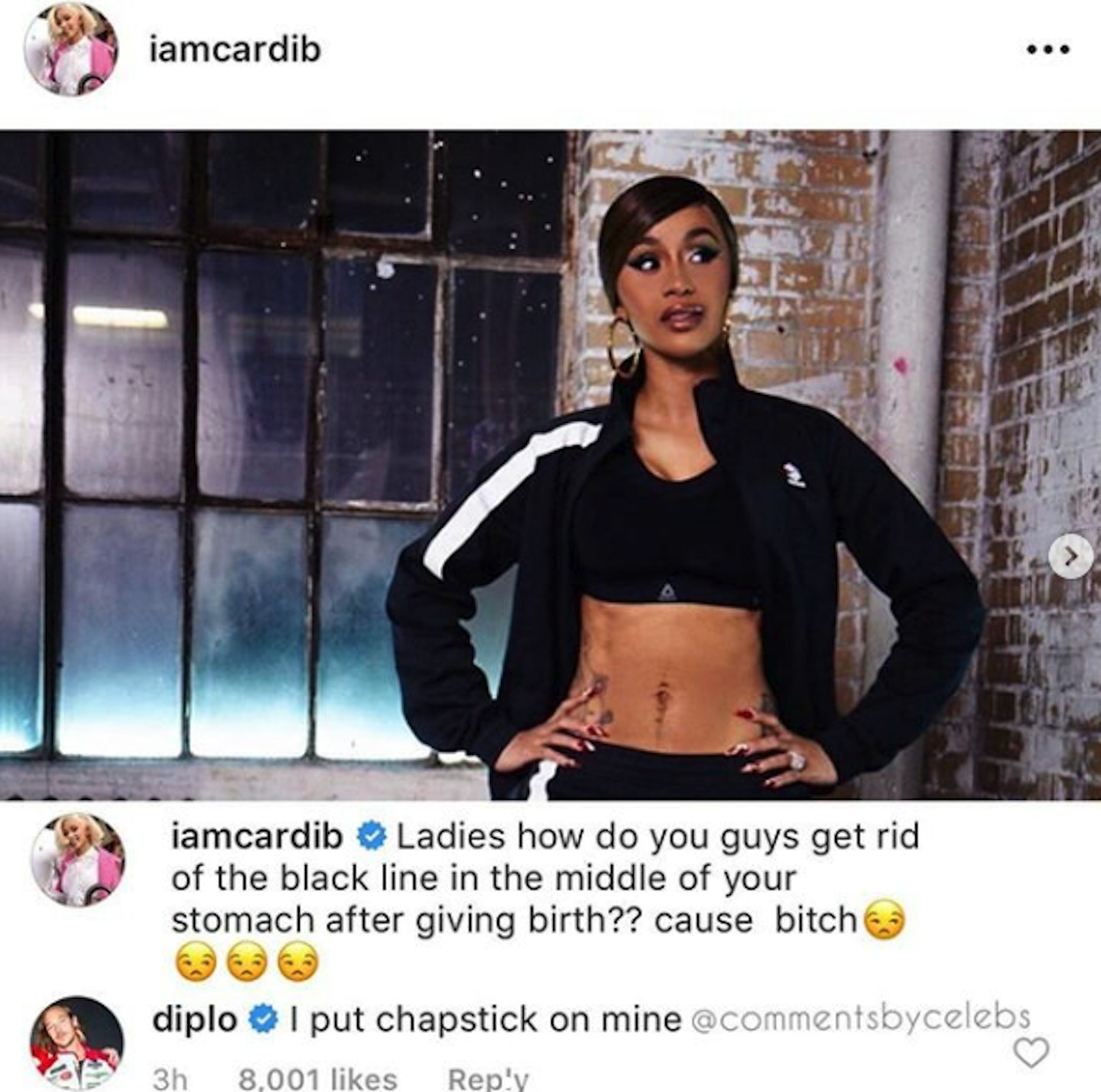 29 of 37
29 of 37comments by Celebs
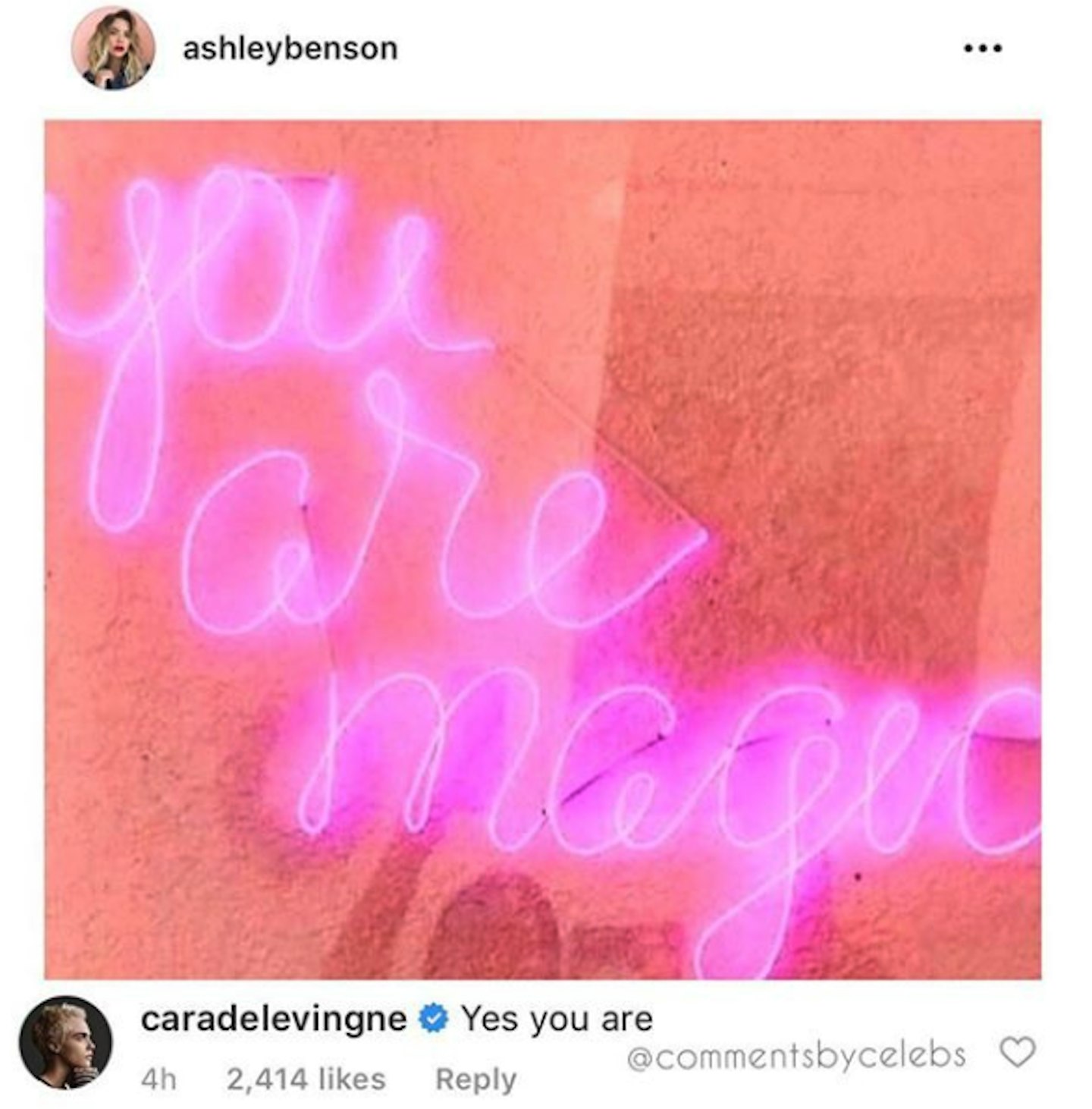 30 of 37
30 of 37comments by Celebs
 31 of 37
31 of 37comments by Celebs
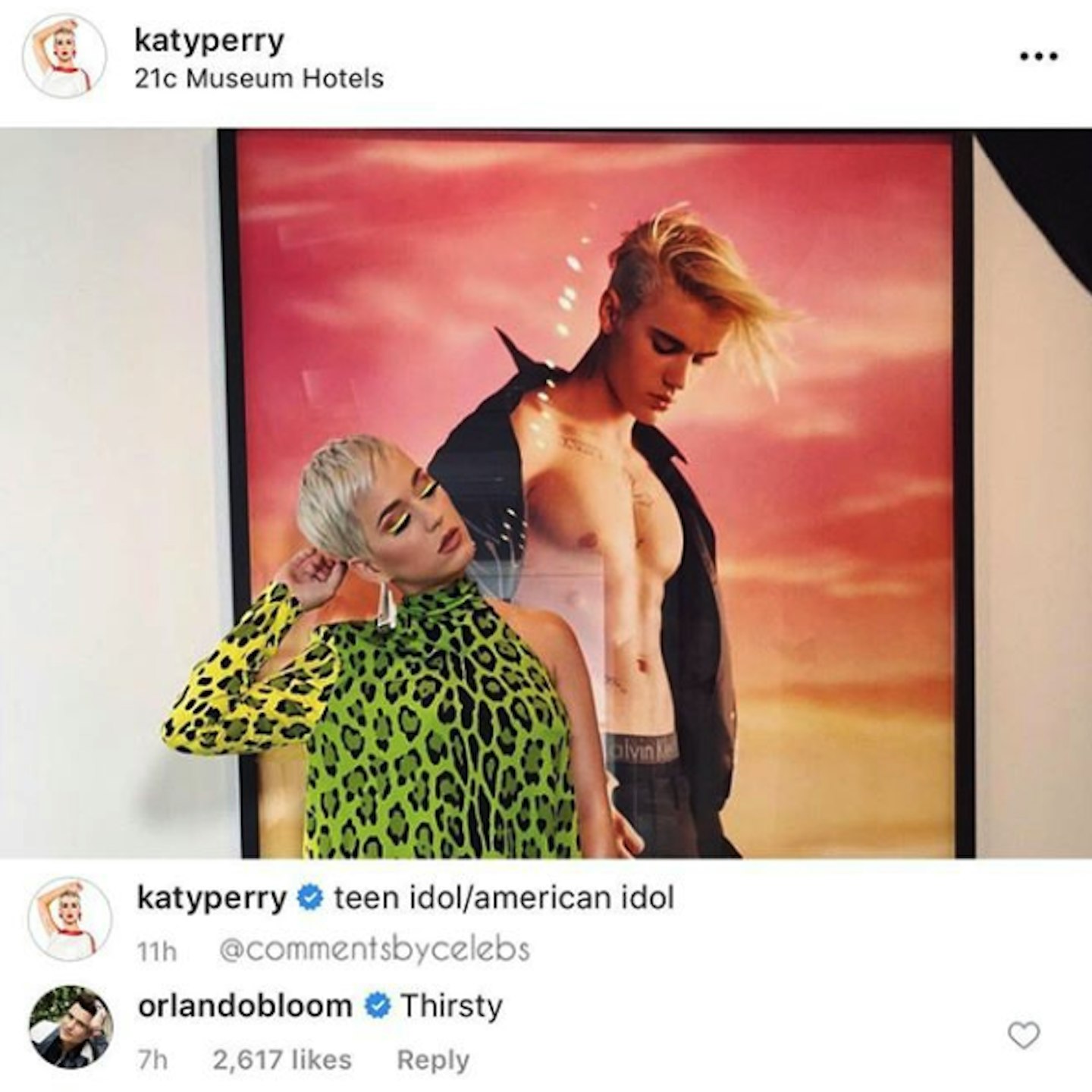 32 of 37
32 of 37comments by Celebs
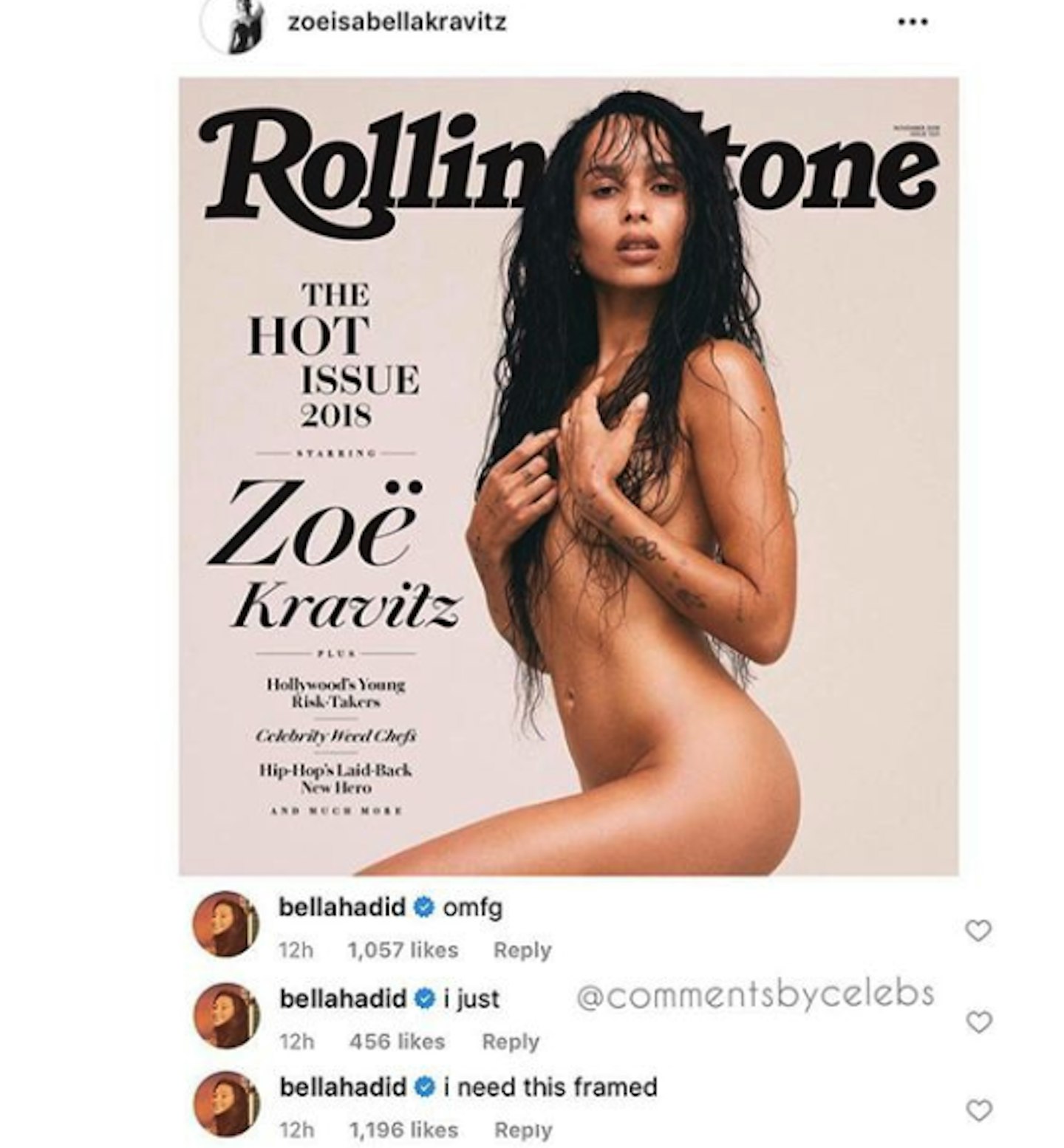 33 of 37
33 of 37comments by Celebs
 34 of 37
34 of 37comments by Celebs
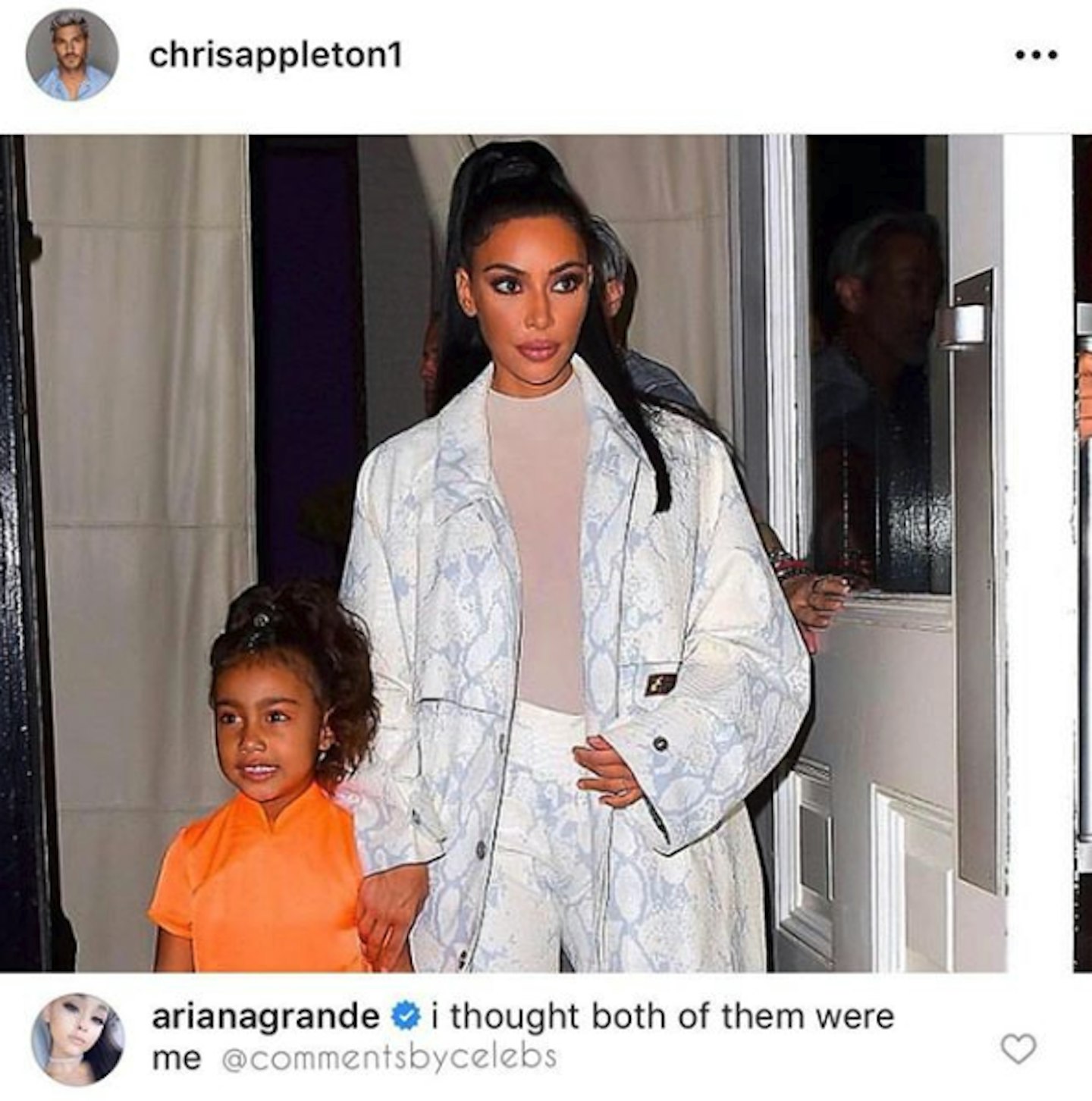 35 of 37
35 of 37comments by Celebs
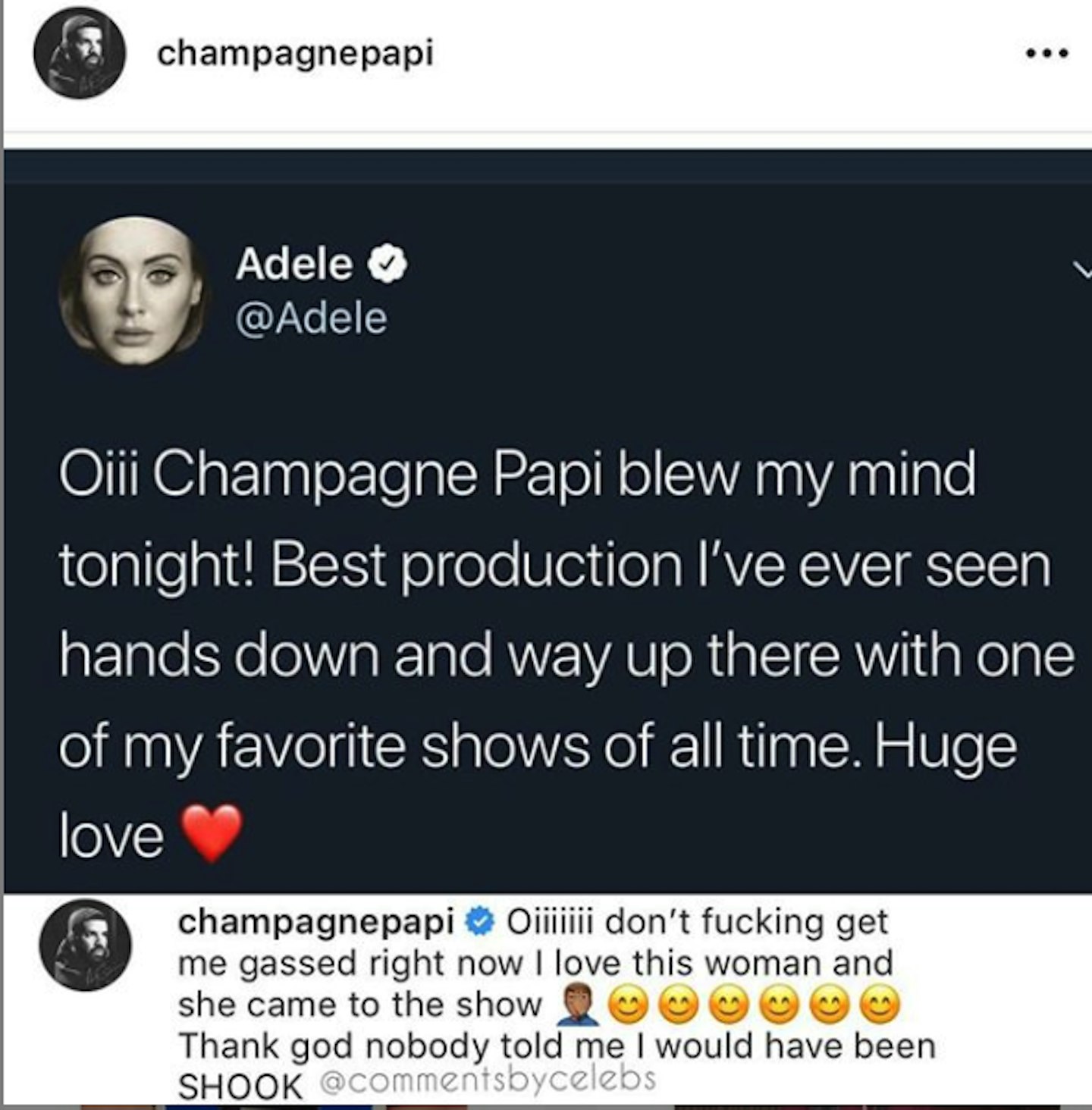 36 of 37
36 of 37comments by Celebs
 37 of 37
37 of 37